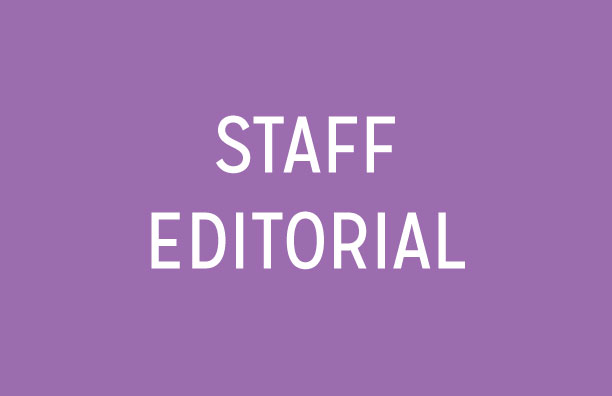In 2009, CHS decided to implement the Skip-A-Final policy to reward students who had few absences and tardy arrivals and prevent students from skipping school. However, in 2016, the policy has major flaws and many unintended consequences.
The most important requirement to be eligible to skip a final is that a student must have fewer than two absences in every class. This requirement wrongfully punishes students who get sick. When a student leaves school in order to see a nurse, the absence from class is counted as an unexcused absence. If a student goes home more than two times during the semester, they are no longer eligible for skipping a final. Furthermore, according to the student handbook, a student should not come to school if they have had a fever within the last 24 hours, which basically means that the student would miss two days already from having a fever. But let’s say that the student, instead of going to the nurse or staying home, decides to toughen it out at school: They are not only putting themselves at risk to get sicker but also becoming a risk to infect other students. If another policy does not allow students to come to school, it becomes almost impossible to meet the requirement to skip their final. Administrators must understand that student cannot control when they get sick and they should not get penalized for illness.
Despite what administrators think, the policy is not encouraging students to come to school. Once a student misses more than two days, they may tend to skip even more than they first planned to do. Administrators must realize once even one of the rigid rules in the policy is broken, students have no other incentive to come to school. Imagine a second semester senior who just missed their third absence; once they’ve missed that one extra absence, intended or not, they may have no real motivation to come to school anymore. The whole purpose of the policy was to increase attendance rates, but it seems like the policy is actually causing more absences.
Yes, we understand that the two-absence system has brought positive results for seven years. However, even small changes to open up the policy will make it more effective, and students may be more inclined to participate in it. For example, if administrators could make a second-choice option for which students who missed one or two extra days due to things they could not control could fill out some kind of appeal, the appeal could then be approved by administrators, and that student would be able to skip his or her final. Another way administrators can make this policy more attractive for students would be teacher approval forms. This would also include students who missed one extra day due to an uncontrollable circumstance. Students could fill out a form for which teachers could recommend, from their grades and participation, if the students deserve to skip that final. The current policy, while it works, brings to light unintended consequences that discourage students from participating.



































![AI in films like "The Brutalist" is convenient, but shouldn’t take priority [opinion]](https://hilite.org/wp-content/uploads/2025/02/catherine-cover-1200x471.jpg)









































![Review: “The Immortal Soul Salvage Yard:” A criminally underrated poetry collection [MUSE]](https://hilite.org/wp-content/uploads/2025/03/71cju6TvqmL._AC_UF10001000_QL80_.jpg)
![Review: "Dog Man" is Unapologetically Chaotic [MUSE]](https://hilite.org/wp-content/uploads/2025/03/dogman-1200x700.jpg)
![Review: "Ne Zha 2": The WeChat family reunion I didn’t know I needed [MUSE]](https://hilite.org/wp-content/uploads/2025/03/unnamed-4.png)
![Review in Print: Maripaz Villar brings a delightfully unique style to the world of WEBTOON [MUSE]](https://hilite.org/wp-content/uploads/2023/12/maripazcover-1200x960.jpg)
![Review: “The Sword of Kaigen” is a masterpiece [MUSE]](https://hilite.org/wp-content/uploads/2023/11/Screenshot-2023-11-26-201051.png)
![Review: Gateron Oil Kings, great linear switches, okay price [MUSE]](https://hilite.org/wp-content/uploads/2023/11/Screenshot-2023-11-26-200553.png)
![Review: “A Haunting in Venice” is a significant improvement from other Agatha Christie adaptations [MUSE]](https://hilite.org/wp-content/uploads/2023/11/e7ee2938a6d422669771bce6d8088521.jpg)
![Review: A Thanksgiving story from elementary school, still just as interesting [MUSE]](https://hilite.org/wp-content/uploads/2023/11/Screenshot-2023-11-26-195514-987x1200.png)
![Review: "When I Fly Towards You", cute, uplifting youth drama [MUSE]](https://hilite.org/wp-content/uploads/2023/09/When-I-Fly-Towards-You-Chinese-drama.png)
![Postcards from Muse: Hawaii Travel Diary [MUSE]](https://hilite.org/wp-content/uploads/2023/09/My-project-1-1200x1200.jpg)
![Review: "Ladybug & Cat Noir: The Movie," departure from original show [MUSE]](https://hilite.org/wp-content/uploads/2023/09/Ladybug__Cat_Noir_-_The_Movie_poster.jpg)
![Review in Print: "Hidden Love" is the cute, uplifting drama everyone needs [MUSE]](https://hilite.org/wp-content/uploads/2023/09/hiddenlovecover-e1693597208225-1030x1200.png)
![Review in Print: "Heartstopper" is the heartwarming queer romance we all need [MUSE]](https://hilite.org/wp-content/uploads/2023/08/museheartstoppercover-1200x654.png)




